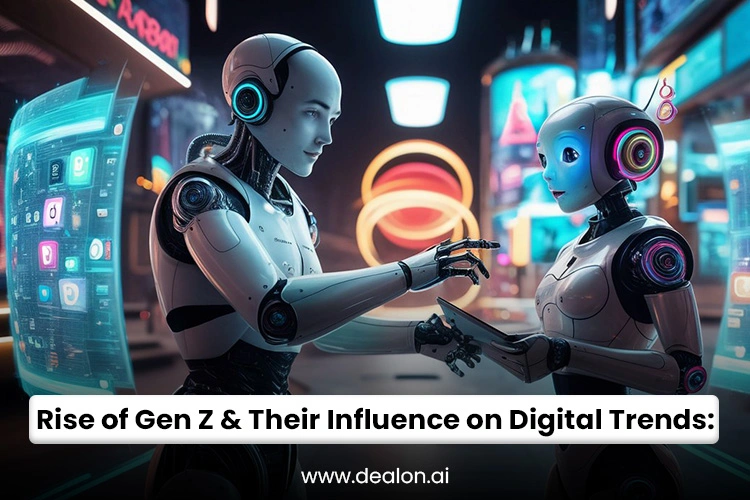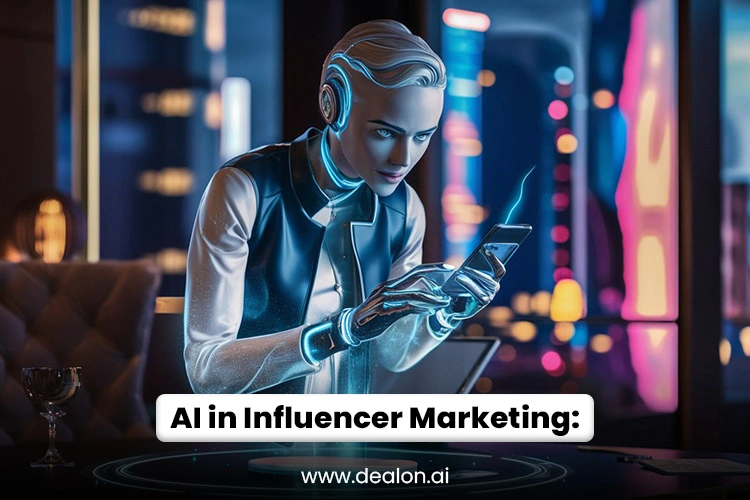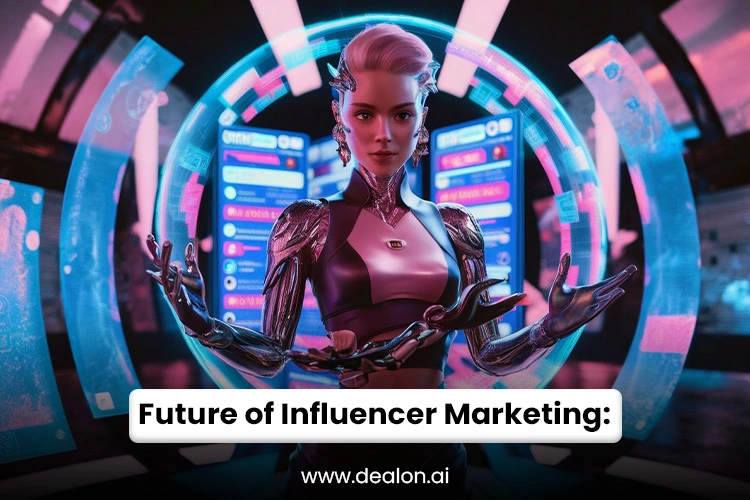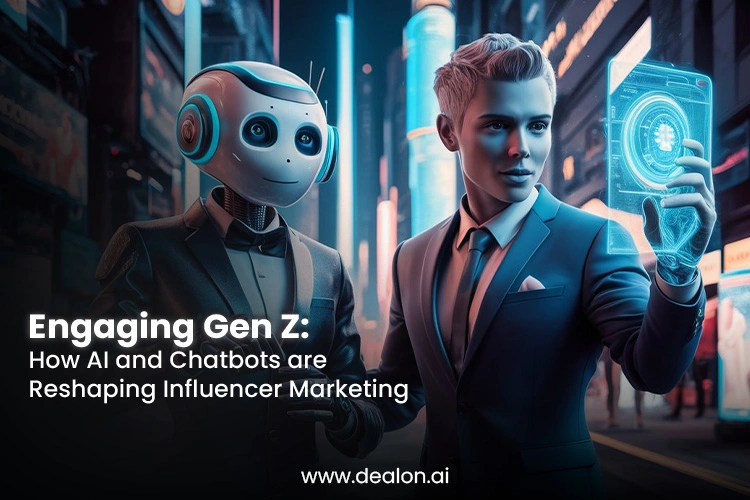In the ever-evolving realm of influencer marketing, connecting with Gen Z—an audience immersed in a digital-first world—has become a pivotal challenge for brands seeking to maintain relevance. As the newest generation of consumers, Gen Z’s expectations are shaped by their constant interaction with technology, demanding a level of engagement that transcends traditional marketing methods. Artificial intelligence (AI) and chatbots have emerged as transformative tools, reshaping how brands connect with this dynamic demographic.
These technologies provide unprecedented opportunities for hyper-targeted, real-time communication and personalized experiences that align with Gen Z’s affinity for authenticity and immediacy. AI’s capacity to analyze extensive data allows brands to tailor influencer partnerships with surgical precision, ensuring they resonate deeply with their audience. Meanwhile, chatbots facilitate seamless, 24/7 engagement, fostering continuous interaction and building trust.
This synergy between AI, chatbots, and influencer marketing amplifies brand presence and cultivates genuine relationships with Gen Z, empowering brands to stand out in an increasingly saturated digital landscape. As we venture further into this AI-driven era, comprehending how to leverage these technologies will be key to unclosing the whole prospect of influencer marketing and driving sustained success in the competitive market.
Also Read: The Future of Visual Commerce: Integrating Chatbots with AI-Powered Visual Search
The Rise of Gen Z and Their Influence on Digital Trends

Gen Z has come of age in a world where digital interactions are as intrinsic as breathing. Unlike previous generations, this group has never known a time without the internet, smartphones, and social media platforms. Raised in an ecosystem of constant connectivity, Gen Z is highly tech-savvy and quickly embraces various digital tools, from social media apps to gaming platforms. Their relationship with technology goes beyond mere consumption; it is deeply woven into the fabric of their identities, shaping how they engage with content and expect brands to interact with them.
The influence of Gen Z on digital trends giis profound and far-reaching. As the first generation to be fully immersed in the digital age, they have redefined the norms of consumer behavior. They are the architects of new media consumption habits, favoring short-form, visually-driven content and prioritizing platforms like TikTok, Instagram, and YouTube. This trend has catalyzed a massive shift in how brands approach marketing, requiring them to rethink traditional advertising strategies to resonate with a generation that is not only digitally native but also highly skeptical of overt commercialism.
Unlike their Millennial predecessors, who were early adopters of influencer marketing, Gen Z is far more discerning regarding authenticity and transparency. This generation values brands that align with their personal beliefs and social values. They demand higher integrity from the brands they support and quickly call out insincerity or superficiality. This shift has forced brands to reevaluate their strategies, moving away from the traditional influencer marketing model that relied on flashy endorsements and toward more authentic, values-driven collaborations.
For Gen Z, influencer marketing is about promoting and creating a genuine connection. They seek interactions that are personalized, transparent, and real-time. They want influencers who reflect their values and who engage with them on a more intimate level. Traditional influencer marketing often falls short of meeting these demands. As a result, brands are turning to advanced technologies like AI and chatbots to bridge the gap.
AI enables brands to refine their influencer marketing strategies by analyzing vast data sets, identifying trends, and tailoring campaigns to Gen Z’s unique preferences. This level of personalization helps ensure that influencer collaborations feel more authentic, relevant, and meaningful. Furthermore, chatbots offer real-time engagement, providing an instant and personalized communication channel that Gen Z expects. Whether responding to a product inquiry or offering exclusive content, chatbots enable brands to maintain constant interaction, fostering a deeper relationship with this digitally adept generation.
By harnessing the power of AI and chatbots, brands can create more immersive and meaningful connections with Gen Z, meeting their expectations for authenticity and personalized engagement in ways traditional marketing methods simply cannot. In this way, brands can stay ahead of the curve, ensuring that they remain relevant in the eyes of this influential generation.
AI in Influencer Marketing: A Game-Changer for Personalization

AI has revolutionized various industries, and influencer marketing is no exception. As brands strive to establish more authentic connections with their audiences, AI emerges as a key player, enabling hyper-targeted engagement and creating personalized experiences that resonate deeply with consumers, particularly Gen Z. This generation, with its high expectations for customization and real-time interactions, demands marketing approaches that align with their individual preferences and values—something that AI is uniquely equipped to deliver.
At its core, AI in influencer marketing relies on advanced data analytics, machine learning, and predictive algorithms to discover patterns and understandings that drive decision-making. By analyzing vast quantities of data—from social media engagement to purchase history—AI helps brands understand their target audience’s nuanced preferences, behaviors, and purchasing habits. This permits companies to tailor their marketing strategies with unparalleled precision, ensuring that influencer partnerships are relevant and authentic.
One of AI’s most powerful applications in influencer marketing is its ability to identify the most suitable influencers for a brand’s message. Through AI-driven tools, brands can sift through massive amounts of social media content to pinpoint influencers whose values, tone, and content align with those of their target audience. For Gen Z, who are attuned to problems like sustainability, diversity, and social justice, AI ensures that brands collaborate with influencers who embody these ideals. By analyzing engagement metrics and sentiment, AI ensures that these partnerships feel organic, relevant, and in tune with the values that matter most to Gen Z.
Moreover, AI optimizes content creation and distribution, enhancing influencer marketing experience. AI-driven platforms can help influencers craft personalized posts, recommending tailored content based on individual user profiles. These systems use predictive algorithms to anticipate what type of content will resonate most with specific segments of Gen Z, thereby increasing engagement and fostering stronger connections. In turn, brands benefit from more effective campaigns that speak directly to their audience, driving awareness and conversion rates.
Beyond content creation, AI also plays a pivotal role in ad optimization. AI tools can automatically adjust ad copy, targeting, and placement, ensuring that campaigns perform at their best across social media platforms. By continuously analyzing performance data, AI refines campaigns in real-time, boosting engagement and maximizing the impact of influencer-led initiatives.
Integrating AI in influencer marketing saves brands valuable time and resources and empowers them to create deeply personalized campaigns that stand out in an increasingly crowded digital space. For Gen Z, who prioritize authenticity and customized experiences, AI ensures that brands meet their expectations for tailored, engaging, and value-driven interactions. As AI continues to evolve, the potential for personalization in influencer marketing is limitless, offering brands an ever-expanding toolkit for crafting meaningful, impactful campaigns.
Chatbots: Instant, Interactive Engagement for Gen Z
Gen Z thrives in an environment where instant gratification is the norm. This demographic, accustomed to rapid access to information and seamless communication, expects brands to meet their needs with immediacy and efficiency. As a result, traditional marketing methods often fall short of keeping up with the fast-paced expectations of Gen Z. In this context, chatbots—AI-driven tools that enable real-time, personalized communication—emerge as a game-changer for influencer marketing.
Chatbots offer brands an invaluable tool for establishing instant, interactive engagement with their audience. Gen Z consumers crave personalized experiences that cater to their unique preferences. With chatbots, brands can create dynamic, real-time conversations, allowing influencers to communicate with their followers naturally tailored to individual needs. Whether answering questions, providing product recommendations, or sharing behind-the-scenes insights, chatbots empower influencers to connect with their audience on a deeper level while offering a convenient and engaging experience.
In influencer marketing, chatbots enhance the user experience by integrating seamlessly into social media platforms. For influencers, this means they can offer their followers immediate responses and consistent engagement without being tethered to the platform at all hours. The chatbot’s ability to handle frequently asked questions and facilitate transactions ensures that influencer-marketer relationships remain smooth and efficient. If a Gen Z follower expresses interest in a product or seeks a recommendation, the chatbot can provide instant answers or direct them to the appropriate purchase page. This level of responsiveness aligns perfectly with Gen Z’s expectations for seamless, on-demand interactions, further deepening the relationship between influencers and their followers.
Moreover, chatbots ensure that influencer engagement doesn’t stop when an influencer logs off. By offering 24/7 interaction, chatbots allow influencers to maintain an ongoing presence, even during off-hours. This constant engagement is crucial in keeping a brand at the forefront of Gen Z consumers’ minds, who are constantly bombarded with digital content and often have short attention spans. Chatbots reinforce brand messaging by being ever-present and keep followers engaged long after the influencer has stopped posting.
Integrating chatbots into influencer marketing also contributes to higher brand loyalty among Gen Z. Personalized communication, immediate responses, and the ability to interact with influencers and brands on their terms foster trust and emotional connections. Gen Z values brands that respect their time and offer customized, efficient experiences—qualities that chatbots embody effortlessly.
Creating Authentic Brand-Influencer Relationships with AI and Chatbots
In the fast-evolving realm of influencer marketing, maintaining authenticity in brand-influencer partnerships is both a challenge and an opportunity. For Gen Z, authenticity is paramount; this generation is exceptionally perceptive and quick to spot when influencers promote products solely for profit. Gen Z values creators who are true to their personal beliefs, ethics, and passions. To effectively engage this audience, brands must ensure genuine collaborations with influencers resonate deeper. This is where AI and chatbots step in, offering innovative solutions for fostering authentic, meaningful relationships.
AI plays a central role in guaranteeing that brand-influencer partnerships remain authentic. Traditional methods of influencer selection often rely on broad metrics such as follower count and engagement rates, but AI can refine this process by leveraging advanced data analytics. AI tools analyze an influencer’s audience demographics, sentiment analysis, content style, and personal values, helping brands identify influencers whose ethos aligns closely with their own. By using AI to identify influencers who genuinely support a brand’s mission, companies can ensure that collaborations feel organic and are more likely to resonate with Gen Z, who prioritize sincerity and transparency in their relationships with brands.
In addition to AI-driven influencer selection, chatbots offer a unique opportunity to deepen brand-influencer relationships by facilitating real-time, personalized communication. Unlike traditional one-way influencer posts, chatbots create interactive dialogues, allowing influencers to engage directly with their followers meaningfully. This interaction can go beyond essential product promotions; chatbots can offer followers personalized content, answer questions, and even share exclusive offers related to influencer partnerships. Chatbots empower influencers to maintain continuous, transparent, and authentic communication with their audience by automating responses while maintaining a personal touch.
Furthermore, chatbots can provide Gen Z followers with real-time updates about collaborations, product launches, or events, keeping them in the loop and reinforcing the authenticity of the influencer’s relationship with the brand. This level of immediacy and transparency enhances trust, a critical factor in Gen Z’s purchasing decisions. Brands that use chatbots to offer exclusive content or personalized experiences—such as tailored discounts or behind-the-scenes access—further elevate the feeling of an exclusive, authentic partnership.
Ultimately, AI and chatbots are powerful tools that, when strategically employed, can create lasting, authentic connections between brands, influencers, and their audiences. By ensuring that influencers align with a brand’s values and fostering transparent, personalized communication, both technologies help mitigate the risk of inauthentic partnerships. Gen Z’s loyalty is earned through trust, and AI and chatbots provide the means to cultivate that trust in innovative and engaging ways. As these technologies evolve, their role in shaping authentic brand-influencer relationships will grow, enabling brands to build lasting bonds with this discerning generation.
The Future of Influencer Marketing: AI and Chatbots at the Forefront

As Gen Z continues to dominate digital spaces, shaping the very fabric of online culture, AI and chatbots are poised to revolutionize influencer marketing in profound ways. Brands that leverage these technologies are gaining a significant competitive edge in reaching this hyper-connected, tech-savvy generation. AI and chatbots have already proven themselves indispensable in influencer marketing by enhancing personalization, engagement, and the authenticity of brand messages.
Looking ahead, the role of AI and chatbots will expand even further. We anticipate deeper integration with cutting-edge technologies like augmented reality (AR), where AI will curate real-time, immersive experiences that allow influencers to engage with their audience innovatively. AI-driven video content creation will likely take center stage, enabling brands and influencers to generate dynamic, tailored visuals that resonate deeply with Gen Z’s interactive tendencies. Chatbot-powered virtual influencers, guided by sophisticated AI, could redefine the concept of celebrity endorsements, creating avatars that engage followers in a highly personalized and continuous manner.
For brands seeking to stay relevant in an increasingly digital landscape, adopting AI and chatbot-powered strategies is no longer a choice—it’s an imperative. As these tools evolve, their capacity to transform influencer marketing will only increase, reshaping how brands connect with the next generation of consumers.
Conclusion
AI and chatbots are transforming influencer marketing by addressing the unique preferences and expectations of Gen Z. This generation, driven by a demand for authenticity, personalization, and instant gratification, is reshaping the digital marketing landscape. Through AI, brands can hyper-target audiences, ensuring that influencer collaborations align with their core values and cultivating authentic relationships that genuinely resonate with Gen Z.
Meanwhile, chatbots offer real-time, interactive engagement, providing seamless communication between influencers and followers and ensuring that brand messages are immediate and personalized. Looking forward, the integration of AI and chatbots will only become more sophisticated, offering exciting possibilities like augmented reality (AR) experiences and chatbot-powered virtual influencers, which will create new dimensions of interaction for Gen Z. For brands aiming to remain at the forefront of digital trends, embracing these technologies is crucial.
The future of influencer marketing will be defined by more profound, more meaningful interactions facilitated by AI and chatbots, enabling brands to meet and exceed the expectations of Gen Z. In this fast-evolving space, the brands that adapt early and integrate these innovative tools will be responsible for the next generation of marketing strategies.

